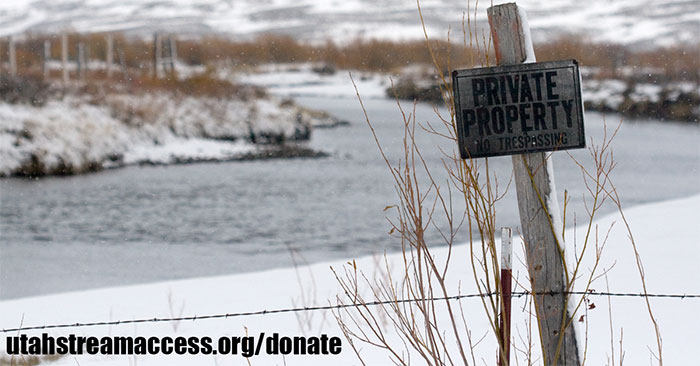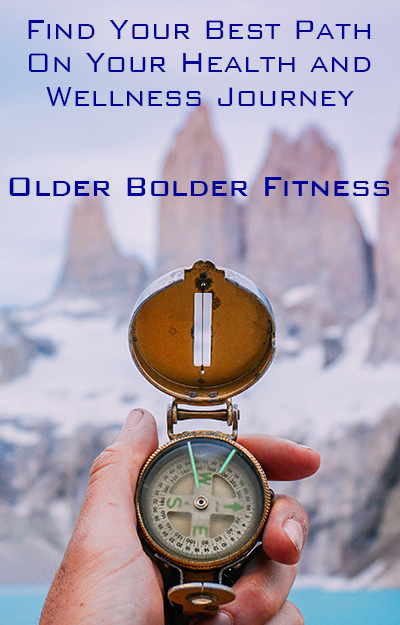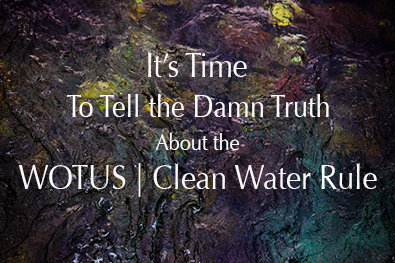
A Bad Utah Law Rises from the Grave
I’ve had the pleasure of getting to know Utah Stream Access Coalition President Kris Olson over the past couple of years as we’ve chatted back and forth about access and other things fly fishing.
Just last week I’d written him an ‘eating crow’ email regarding on issue (not access related) we’d differed on and he ended up being absolutely right about; that evening he returned a message saying that Judge Pullan’s November ruling opening Utah waters back up had been stayed by the Utah Supreme Court (USC).
The constitutionally granted, rational, and legal re-opening of Utah’s waters lasted all of 113 days.
My response back to Kris was at first simply “damn” and then a statement along the lines of being pissed off once again, even though the Stay being granted wasn’t totally unexpected from a legal standpoint.
Time to Channel That Frustration Again for the Next Access Fight Round in Utah
Intending to help USAC focus support on the needs at hand, given this latest turn in the story, I emailed Kris and asked him to share a bit more on the backstory; he graciously responded with this –
I understand why people are pissed. They should be. It’s 60 degrees in SLC right now and spring is coming fast. I’m sure a lot of people we’re looking forward to fishing public water they’ve been excluded from since 2010, and now they’re being told they have to wait another couple of years.
As far as the Stay goes, we (USAC) aren’t reading too much into this; appellate courts err of the side of caution when decisions upset the status quo (ed – read: established law). From a practical standpoint it’s much easier for the Court to wait to tell people that the rivers are all open if we prevail, than “Sorry you’ve been able to fish for 2 years, rivers are closed again” if we lose. So the Stay is disappointing, but not a big surprise.
While this appeal works its way through the USC (Utah Supreme Court) over the next couple of years, we’re going to continue to work with legislators to draft a solution that represents the interests of all parties and will stand the test of time. Ultimately, even after the Utah Supreme Court rules, the legislature is going to have to act. Good policy isn’t crafted overnight, or in secret, by one person. Bad policy got us into this mess, and that’s probably the biggest takeaway here. People need to be having a steady, passionate dialogue with their legislators in person. Put a face to this issue, and continue to follow up.
This year is an election year. The entire House and half of the Senate are up for election. Caucus night is March 22 here in Utah. If your delegates and legislators don’t represent your interests as sportsmen and women, vote them out.
Donations matter, and all donations make a difference. There was a kid that donated his allowance money to us at the F3T show a couple weeks ago, and there’s a group of guides on the Green R that are organizing a multi-boat benefit float for us. Both are hugely impactful to the cause.
Our organization is mission bound by any means necessary, and over the past 5 years we’ve made huge strides forward. We continue to grow and gain momentum. We’re not going away.
And of course the all-important point that people need to respect private property and not trespass without permission. This is about building relationships, not perpetuating an “us versus them” dialogue.
Is There a Parallel: Utah’s Access Battle and the Public Lands Grab?
It does seem somewhat ironic that one of the most egregious disruptions of stream and river access at a statewide level in the past decade has occurred in Utah, the same state that houses the epicenter of the Public Lands grab in the form of the American Lands Council, founded by Ken Ivory.
The ongoing story in Utah should send chills down the spine of every public-lands-loving fly fisher, hunter and recreationist around the country.
Public land remaining public and rightful, responsible access do matter.
More than ever.

